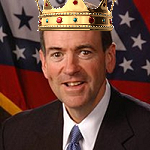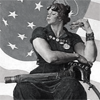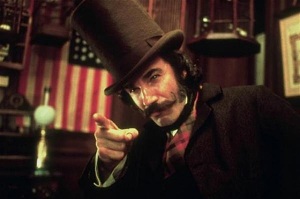Specifically, I'm talking about this whole NBA vs Sterling thing. For the record, before I get called "racist" again, it's reprehensible that Sterling made racist remarks, is racist, etc. OK? Got it? Let's get to my point.
Sterling essentially owns a franchise of the NBA. Although he's not an "employee" of the NBA, it (evidently) can make him do certain things that we would rather not do, up to and including stripping the team from him. This sounds all fine and dandy. Pretty straightforward contract law.
And, I think we're all pretty aware that most employers may fire an employee, primes can fire subs, etc., if that person makes disparaging remarks in public about the employer/prime/etc.
But, Sterling made no such public comments. He made them in private, and that person leaked them to the public. To me, this is a big difference. If one cannot have a reasonable expectation that things done in private will stay that way, then people will be reluctant to express themselves in any way.
Let me try this from another angle. It's not illegal to be racist. Deplorable and disgusting, but not illegal. It's also not illegal to be a Satanist or pagan, though some would say they fall along the same lines. A large part of being racist is the exercise of freedom of speech (if you aren't free to say it, then no one knows you really are). Like those Westboro church people, freedom of speech is a basic American right, even when used for disgusting purposes. But, back to the religion angle.
What would happen if Sterling was a Satanist? He had hidden it for years, but now someone releases a secret video and it comes out. Would America support stripping his team from him because he was a Satanist? If people do not feel comfortable exercising their rights in private, much less in public, without fear of reprisal, what good is having those rights?
In a nutshell, here's my question - can an employer fire someone (or otherwise take away their means for making a living) for them exercising their Constitutionally-protected rights in private?
One last thought - the Bill of Rights says that "Congress shall make no law" yada yada. Later on, this was interpreted to also mean that, if Congress cannot do it, then neither can States or any other law-making entity. Yet, one private entity may force another private entity to do something which they prefer not to do, because they were exercising their rights, and the state will uphold the ability of one party to do that to another? In other words, the State may not be "making" a law, but it's decision has the weight and power of one. Would violating a judge's civil court order be a violation of law? Therefore, if the judge renders an opinion that punishes one person for exercising free speech, hasn't he just made a law restricting such speech?
I'm conflicted on this. I can see both sides. My heart tells me to side with the NBA. My head tells me to side with Sterling (and I feel dirty because of it).
Obligatory article http://www.usatoday.com/story/sports/nb ... a/9151207/
Constitutional vs employer rights
42 posts
• Page 1 of 5 • 1, 2, 3, 4, 5
Re: Constitutional vs employer rights
The NBA isn't really his employer. He doesn't have an employer. He's a franchise owner. In order to become a franchise owner he had to agree to terms set up by the NBA, among which is a procedure by which the association can force you to sell your franchise if enough of the other owners agree that you've caused a certain level of damage to NBA. I think considering the nightmare he's caused for the NBA, it's not inappropriate for them to vote to make him sell, and since it's part of the association bylaws that every franchise owner has agreed to, I don't think his rights are being violated in any way.
go ahead. keep screaming "Shut The f**k Up " at me. it only makes my opinions Worse
-

Philly - Governor
- Posts: 9899
- Joined: Sat Feb 22, 2014 6:36 pm
- Gender:

- Has thanked: 975 times
- Been thanked: 1223 times
- Political Leaning: DEMOCRATIC SOCIALIST
Re: Constitutional vs employer rights
In Right to Work states, you can be fired for any or no reason whatsoever. As far as federally protected rights, that only goes so far as an employer actually being stupid enough to put it in writing that it was the reason. If someone takes over a company I'm working for and doesn't like having women around, they just come up with some lame assed excuse to do it anyways or no excuse at all. There are plenty of companies that will forgo fighting Unemployment just to get rid of people. Also, in most RTW states it is hell to fight a company over UI or Workman's Comp.
If you support RTW, then you don't have a conflict with this unless you only support RTW when it comes to the common man getting f**k over but not when it comes to the rich.
If you support RTW, then you don't have a conflict with this unless you only support RTW when it comes to the common man getting f**k over but not when it comes to the rich.
-

Mo~ - Congressman
- Posts: 730
- Joined: Sun Aug 19, 2012 1:01 pm
- Gender:

- Has thanked: 9 times
- Been thanked: 141 times
Re: Constitutional vs employer rights
Sterling entered a contract with the NBA.. The NBA is the actual boss of all the teams. Not owner, but the boss.. He violated the contract, so the NBA has every right to fire him.. I see this as no different than if a board or shareholders dump a CEO because his conduct violated his contract with the company.
BTW I don't see how this is a constitutional question, or has anything to do with freedom of speech. Freedom of speech protects the citizens from the government. Not one private citizen from another.
Sterling will take this to court, he already said he will NOT pay the fine.. But no court in the land will rule against the NBA.. This is ironclad.
BTW I don't see how this is a constitutional question, or has anything to do with freedom of speech. Freedom of speech protects the citizens from the government. Not one private citizen from another.
Sterling will take this to court, he already said he will NOT pay the fine.. But no court in the land will rule against the NBA.. This is ironclad.
- Mr.Bill
- VIP

- Posts: 3548
- Joined: Mon Aug 20, 2012 5:13 am
- Gender:

- Has thanked: 174 times
- Been thanked: 227 times
Re: Constitutional vs employer rights
I don't think the agreement has much to do with things said in public vs private. It's about, at the discretion of the other franchise owners, if your actions have damaged the NBA, they can vote to expel you more or less.
go ahead. keep screaming "Shut The f**k Up " at me. it only makes my opinions Worse
-

Philly - Governor
- Posts: 9899
- Joined: Sat Feb 22, 2014 6:36 pm
- Gender:

- Has thanked: 975 times
- Been thanked: 1223 times
- Political Leaning: DEMOCRATIC SOCIALIST
Re: Constitutional vs employer rights
BTW, thanks for being civil about this. I was hoping it didn't devolve into a racism thread. The day is still young, but so far, it's been a good academic discussion.

-

Professor - VIP

- Posts: 7553
- Joined: Mon Aug 20, 2012 2:42 pm
- Location: New Orleans, LA
- Gender:

- Has thanked: 54 times
- Been thanked: 570 times
- Political Leaning: Rockefeller Republican
42 posts
• Page 1 of 5 • 1, 2, 3, 4, 5
Who is online
Users browsing this forum: No registered users and 2 guests


